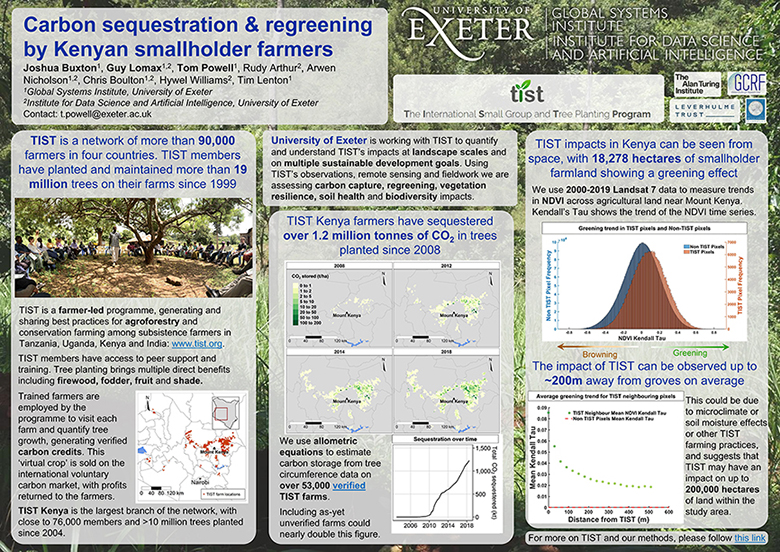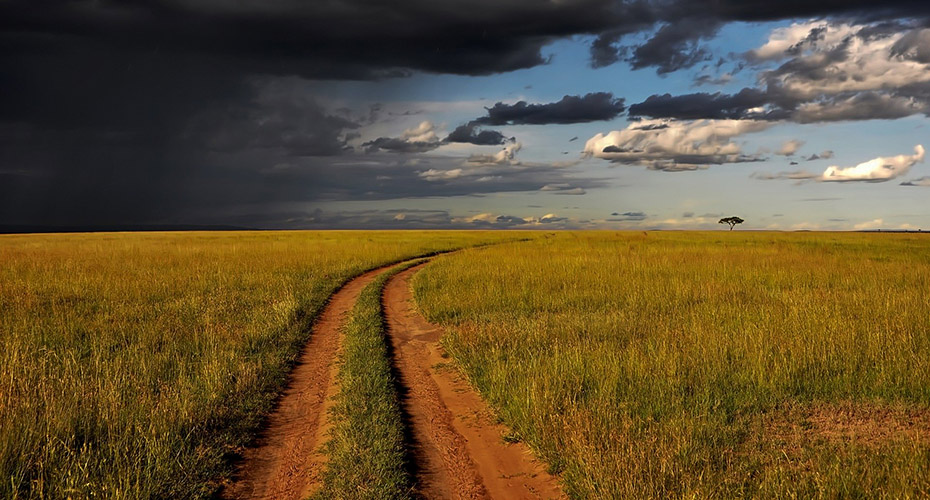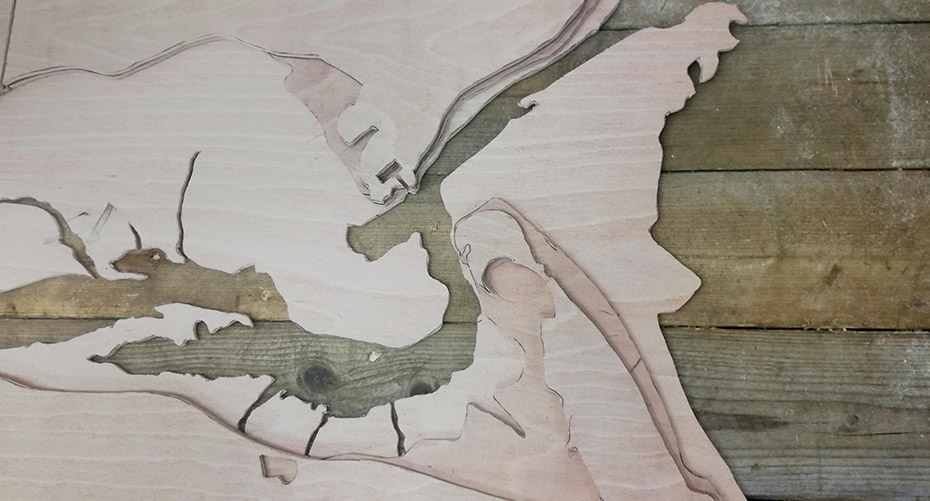TIST is a farmer-led network operating in Tanzania, Uganda, Kenya and India, with over 100,000 members (80,000 in Kenya). TIST supports subsistence farmers to plant trees on degraded land to provide fuel, fodder, fruit crops, to protect and rebuild soils and to sequester carbon. By planting trees members of TIST grow a ‘virtual crop’ of verified carbon credits that can be sold internationally, with 70% of the proceeds returning directly to the farmers and the remainder invested in the program. TIST has shown enormous benefits both to the farmers it serves and to the ecology of the landscapes in which they live, with quantified impacts on 16 out of 17 of the sustainable development goals.
To help better serve the farmers, and scale up the impacts across degraded landscapes GSI has been working with TIST on three key activities:
1. In their 20 years of operation TIST has accumulated an extremely large collection of data including tree locations and growth rates, connected to social information such as meeting dates, gender, date of membership etc. We are working with TIST to map social networks as TIST grows by grass-roots activity and word of mouth, and to try to understand characteristics of the most successful and less successful TIST groups.
2. We are combining TIST’s own data with remote sensing products and field studies to understand TIST’s ecological impacts at the landscape scale, and understand the likely impact on farmers of projected climate change.
3. We are helping TIST to develop a new generation of training materials that can be delivered remotely to widen TIST’s reach and allow it to spread to areas it would not reach by its current word-of-mouth approach.

» Download/view the TIST Poster pdf or watch Tom Powell present the poster at the online event Nature Based Solutions Digital Dialogues
» TIST website
» Read Rudy Arthur's blog, 'Data Science for Climate Resilience in East Africa'
» Watch a wonderful animation from the folks at Kiss the Ground about carbon, soil, and the promise of regenerative farming practices.
Visit website






